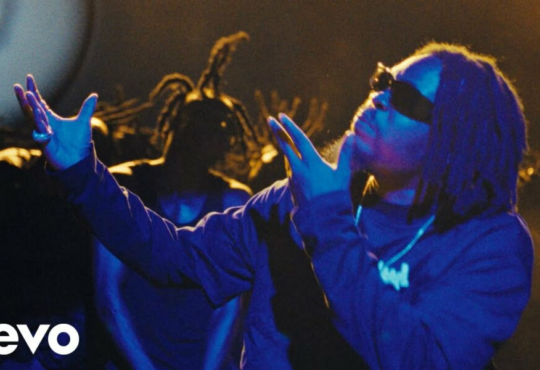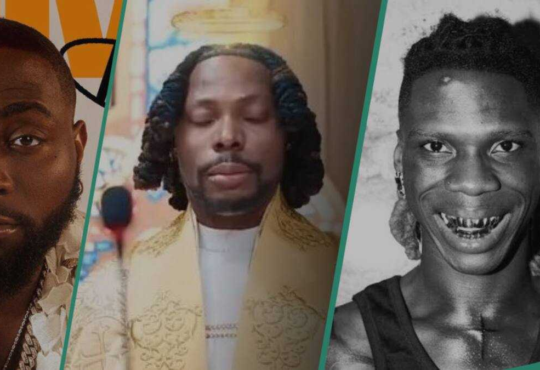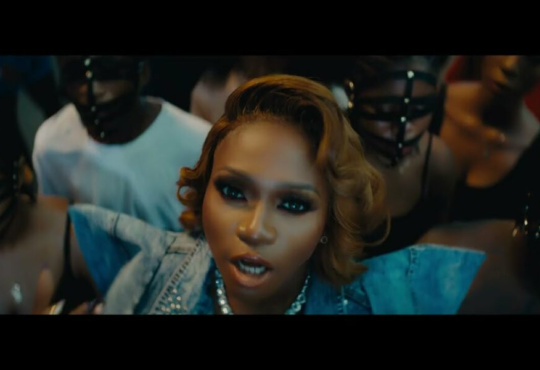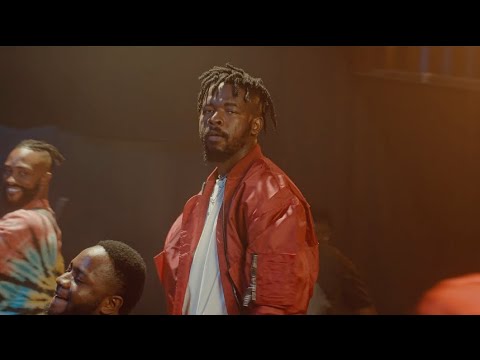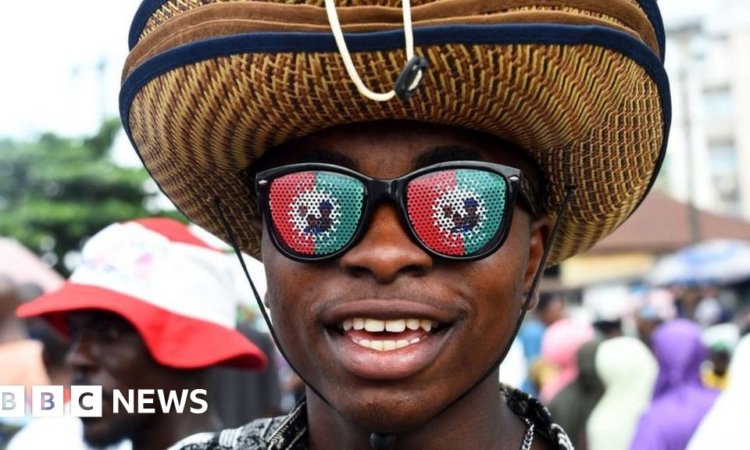
Young Nigerians have turned Saturday's presidential election into the most competitive since the end of military rule in 1999, with many backing a third-party candidate to take on the country's two main political machines and bring change to the country after years of stagnation, corruption and insecurity in Africa's most populous nation.
Spurred on by the 2020 EndSars anti-police brutality protests that morphed into calls for good governance, millions of young people have registered as first-time voters.
"If Nigeria continues on this downhill, it will be disastrous, so yes, it's a defining moment," said Rinu Oduala, a 24-year-old woman who was among the protesters who camped outside the governor's office in Lagos for weeks, two years ago.
Though the protests were brutally halted by the army, the disbandment of the Sars police unit notorious for profiling young people was considered a success.
That seems to have galvanized frustrated young Nigerians and now they are targeting the highest office in the land.
The man many are backing, Peter Obi of the Labour Party, is not that young at 61. Nor is he really a new broom in Nigerian politics as he has previously been the vice-presidential candidate for the main opposition Peoples Democratic Party (PDP).
But he is considered an outlier because of his accessibility, simplicity and his record of prudence with public funds when he was Anambra state governor.
"I should be in the peak of my life right now, balling financially and physically, but there is no money and there are kidnappers everywhere," said Ovie Esan, a 25-year-old man in Lagos.
Many accuse President Muhammadu Buhari, who is stepping down after two terms, of mismanaging the economy and overseeing the most insecure period in the country since the 1967-1970 civil war.
Under his watch, young middle-class Nigerians have seen their finances battered by record levels of inflation.
One in three of them cannot find a job, students have experienced incessant strikes by lecturers and many of Nigeria's finest are desperate to leave the country.
On top of this, widespread insecurity has seen armed groups kill more than 10,000 people and abduct more than 5,000 last year alone, according to the International Crisis Group.
Offering hope of a new era, Mr Obi is going up against the twin behemoths of the ruling All Progressives Congress (APC) and the PDP who have alternated in power since the end of military rule in 1999. Their candidates are both in their 70s in a country where some three-quarters of Nigeria's 210 million people are aged below 35.
Ethnic and religious factors also influence the choice of many voters.
Mr Obi has been openly supported by Nigeria's huge evangelical Christian movement in the south, and can also rely on the votes of Christians who feel persecuted in the mainly Muslim north.
Mr Obi is an Igbo from the east, the only major ethnic group yet to supply a Nigerian leader. While some back the idea it is their turn to be in power, the APC and PDP candidates will enjoy the backing of many in their home areas – the south-west and north respectively.
Victory for Mr Obi is far from guaranteed.
The APC and PDP have the advantage of countrywide name recognition, which the Labour Party seems to struggle with, especially in vote-rich rural areas in the north.
Both parties can also call on tested political machines to bring out the support on election day in villages where voters are influenced by local leaders.
Despite having vast oil and gas riches, Nigeria has been held back by widespread corruption since independence in 1960.
The ruling class, whether military or civilian, has been unable to provide basics like stable electricity, pipe-borne water or jobs for the huge young population.
Now, many seem to have had enough in what the head of the electoral commission has described as the "election of young people". A record 93 million people have registered to vote, 40% of whom are under 35.
If they turn out to vote in large numbers, it could prove to be a watershed in the country's history – a time to reset and begin anew.
"We can only take so much more before the famed 'Nigerian resilience' crumbles. The importance of Nigeria's stability in West Africa, Africa and the entire world cannot be over-emphasised," said Ms Oduala.
In the past, young upwardly mobile Nigerians and millions in the middle class in the south have largely been apathetic about elections due to fear of violence on voting day and an uninspiring list of contestants.
But interest in this election has been spurred by Mr Obi.
"He believes in human capacity and invested so much in education," said Atogu Nneka, vice-principal of a state secondary school in Anambra's capital, Awka, where the Labour Party candidate enjoys huge popularity.
Mr Obi has said that youths are running for office through him, and has surrounded himself with many of those involved in the EndSars protest.
They include Aisha Yesufu, whose fist-raising photograph on the day young protesters camped outside the police headquarters in Abuja in 2020 became something of a symbol for the young protesters.
"They dared us to go into politics and change the government and that is what everyone is doing," she said in a rousing speech during Mr Obi's last rally two weeks ago in Lagos.
But in an election where the frontrunners come from the three major regions in the country, a winner will need votes beyond his base to be guaranteed victory and this is more of a challenge for Mr Obi than the other two.
"We only just started hearing of him but nobody knows him in our village," said one woman in Bakiyawwa, a rural community in the northern Katsina state.
Many consider the election to be a referendum on the ruling party, whose candidate Bola Tinubu is widely credited for reshaping the commercial hub Lagos as governor between 1999-2007.
Mr Tinubu, 70, was instrumental in the emergence of President Buhari in 2015 but has controversially said that he cannot be judged on the records of the present government.
For many though, it is hard to look beyond the hardships of the last eight years, exacerbated by the chaos the introduction of new banknotes has caused in recent weeks.
Many have slept outside cash machines and banks waiting to get the new naira notes which are in short supply in a country where many rely on cash.
The government said the redesign will help reduce inflation and has blamed the banks for hoarding the cash, but many think the exercise is targeted at politicians involved in vote-buying on election day and there is a mixed reaction to the policy.
It has led to widespread anger and riots in some states, and will be on the minds of many voters on Saturday.
"You would think that the APC is not trying to win this election," said a taxi driver at a queue for a cash machine in Victoria Island in Lagos.
Mr Tinubu is also having a hard time convincing young people outside his home area that he is the man for the job as many are concerned about his health. He has been seen at campaign grounds being supported when climbing stairs or standing upright and sometimes it is hard to understand what he is saying.
But he is loved in the south-west part of the country where many feel that his legacy in Lagos, where he quadrupled the state revenue and upgraded its infrastructure, is exactly what Nigeria needs.
"He has an eye for talent and will surround himself with people who can get things done," said Rukayat Owolaranfe, a market leader in the Balogun area of Lagos Island.
But he and the PDP candidate, former Vice-President Atiku Abubakar, 76, are seen by many as part of the old order responsible for Nigeria's ills.
The PDP was in power for 16 years, most of which saw government revenues boosted by oil sales. But it was a time plagued by accusations of widespread corruption, some of it involving Mr Abubakar, which he has denied.
Mr Abubakar has changed parties several times – this is his sixth attempt at the presidency since 1993 – leading many young people to question the freshness of his ideas for the top job.
However, his supporters consider him the most experienced man on the ballot. As the only major candidate from the north, he will enjoy the backing of many in that region. He has promised critical reforms that will restructure the country.
"Nigerians are looking for a messiah but the problems are institutional and can only be solved by correcting fundamental issues," said Francis Ugwu in Rivers state, who has always voted for the PDP.
But for 19-year-old first-time voter Blessing Ememumodak, Mr Obi represents the hope on which her future rests.
"Only those who don't mean well for this country will let this opportunity of electing Peter Obi to pass us by. Eight years, or even four years with a bad president, is a long time," she said.
The election feels like a showdown between an unstoppable force and an immovable object for Nigeria's future. Whoever wins, it feels like the beginning of a new era – in which Nigeria's massive young population will no longer take a backseat.
Allegations that Bola Tinubu's diplomas were fake went viral after the release of his certificates.
The BBC Global Disinformation Team analysed three new websites in Nigeria and found many false stories.
President Bola Tinubu's opponents failed to prove allegations of rigging, the court rules.
After fighting military rule in the 1990s, Bola Tinubu feels entitled to become Nigeria's president.
Veteran politician, Bola Ahmed Tinubu, has been sworn in as Nigeria’s new president.
Copyright 2024 BBC. All rights reserved. The BBC is not responsible for the content of external sites. Read about our approach to external linking.


